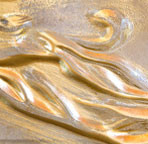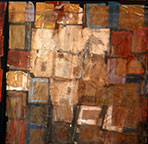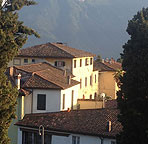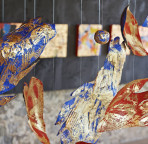“Eve , The Eternal Housewife”
(from Eve)Jesus speaks—
O you who track down in their corners and lairs
Dirt and disorder and every impurity,
Every disharmony, every dishonesty,
O mistress of labors, of vigils and of cares,You set a match to the lamp that you are holding,
The supper table glows beneath its steady rays,
You take this duster to wipe the staircase molding,
And you arrange the flowers and you arrange the days.O woman, you arrange the days and all their labors,
And many alternations and vicissitudes,
And governments with their solicitudes,
And the ancient ploughshare and new endeavors.O woman, you arrange towers and palaces,
And every recantation and iniquity,
And youthful misery and all antiquity,
And ancient tenderness and new embraces.Women, I say you would arrange the Deity,
If He should choose one day to come within your home,
You would arrange the insult, the heedless blasphemy,
If in this prison God Himself should come.
( . . . )
—Charles Péguy, Eve
Introducing a volume of Péguy’s work, Portal of the Mystery of Hope, Jean Bastaire notes, ” A great text not only is beautiful; it creates life.” Many people assign this kind of greatness to the work of the French poet and essayist, Charles Péguy. In the poem, Eve, Jesus addresses Eve as the representative of humanity, speaking to her of the interaction of human history and eternity, and ultimately of the great mystery of human hope. Written in 1908, the piece is 7,643 lines long. Péguy, had this to say about his grand poem: “How can one fail to see that this total awe, this sort of profound and serious universal tenderness is here not only given representation in eminent form, but is summed up in eminent form in the respect, the great tenderness, of Jesus toward his first fleshly ancestress? . . . Tenderness is not simply a matter of emotional tenderness but is an essential gentleness as it belongs to the heart of all existence: to the child, to the swelling bud, to hope and all the mysteries in the bosom of being.”
As we await the swelling bud this week, let Hope be our quiet companion.
Comment welcome.

 Mount Tabor Talks
Mount Tabor Talks Sacred Sites: The Holy Land in the Heart of Italy
Sacred Sites: The Holy Land in the Heart of Italy



